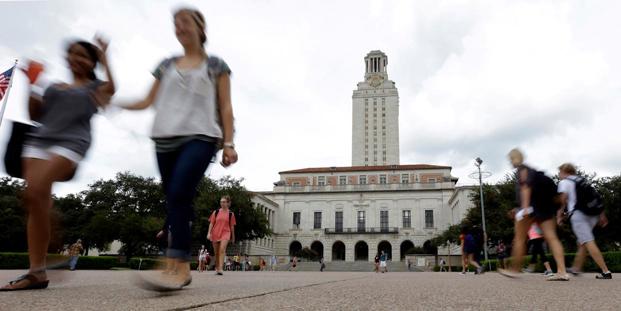Background on Legal Actions Against Texas Education Policy
Attorney General Pam Bondi recently appeared on 'Fox & Friends' to address the U.S. Supreme Court's ruling and share insights from the Trump administration regarding a crucial legal development in Texas. The case centers around the decision to withdraw over $1.5 million in federal funding from Maine’s Department of Corrections as part of a broader push to enforce federal immigration law.
The U.S. Department of Justice (DOJ) has filed a complaint in the Northern District of Texas, targeting a state law that allows colleges and universities to offer in-state tuition rates to immigrants residing in Texas, regardless of their legal status in the U.S. This suits is grounded in federal law, which mandates that higher education institutions cannot extend benefits to illegal aliens that are not similarly accessible to U.S. citizens.
The Impact of Federal Law on State Practices
Bondi emphasized the DOJ’s commitment to upholding federal regulations, stating, "Schools cannot provide benefits to illegal aliens that they do not offer to U.S. citizens." Such statements illuminate the administration’s focal point on ensuring that U.S. citizens do not find themselves treated as second-class residents in their own country.
The legal action comes in the wake of two executive orders signed by President Donald Trump in January, aimed at ensuring that illegal immigrants cannot access taxpayer-funded benefits. The order titled "Ending Taxpayer Subsidization of Open Borders" specifically mandates all agencies to prevent unqualified aliens from accessing such resources. Another order, "Protecting American Communities From Criminal Aliens," instructs officials to eliminate any state laws that favor immigrants over American citizens.
Texas Dream Act and Its History
Known as the Texas Dream Act, the legislation facilitating in-state tuition for undocumented students was introduced in 2001. This landmark policy came about after federal courts ruled that immigration status should not hinder access to primary and secondary education. However, higher education remained a different issue altogether, with undocumented students initially facing substantially higher tuition rates.
By removing federal immigration status as a criterion for determining eligibility for in-state tuition, the Texas Dream Act allowed numerous students graduating from Texas high schools to pursue higher education at accessible costs. Currently, approximately 57,000 undocumented students are enrolled in Texas colleges and universities, leading to significant implications should this legislation be overturned.
Responses to the Legal Challenge
In response to the DOJ's lawsuit, Texas Attorney General Ken Paxton announced a joint motion with the DOJ, seeking to declare the Texas Education Code provision unconstitutional. Public reactions have been polarized: some laud the move as a necessary step towards enforcing federal law, while others criticize it for unfairly targeting young students who have grown up in Texas.
Supporters argue that the continuance of benefits to undocumented individuals creates an unfair advantage over U.S. citizens, particularly those who face higher tuition rates. Critics, however, are concerned that this legislative change could curtail educational opportunities for deserving students, thereby impacting the state's workforce and overall growth.
What Lies Ahead
This lawsuit is emblematic of the Trump administration's broader strategy to tighten immigration controls and regulations. As the legal challenges progress, high stakes exist for both students seeking education and for state policies that intersect with federal law. The Texas GOP's long-standing support for the Dream Act may now face significant reevaluation in light of emerging federal imperatives.
Governor Greg Abbott's vocal support for the legal action against the Texas Dream Act highlights the significant political dimensions at play, as legislators navigate the complex intersection of state rights and federal mandates. Observers will be watching closely as this situation evolves and speculation grows regarding the future of similar policies in other states.
Bias Analysis
Key Questions About This Article




